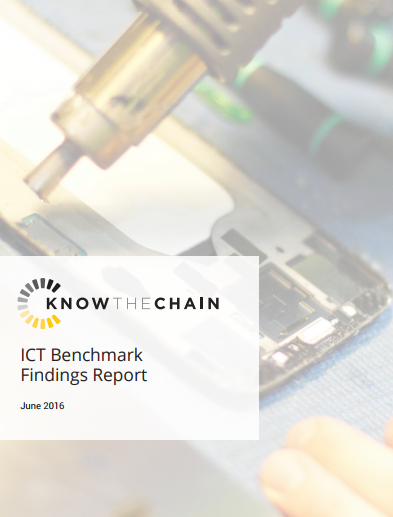This report benchmarked 20 information & communications technology (ICT) companies (see below) on their efforts to eradicate forced labor from their global supply chains. The companies were selected on the basis of their size (market cap) and the extent to which they derive revenues from physical products as opposed to services. Each company has been invited to provide answers to a set of engagement questions about their policies and practices in addressing forced labor risks in their supply chains. Information provided in these responses will be included in assessing the companies against the methodology, along with existing material available on the companies’ websites.
Companies
| Apple Inc. |
United States |
| ASML Holding NV |
Netherlands |
| BOE Technology Group Co. |
China |
| Broadcom Limited |
United States |
| Canon Inc. |
Japan |
| Cisco Systems, Inc. |
United States |
| Ericsson |
Sweden |
| Hitachi Ltd. |
Japan |
| Hon Hai Precision Industry Co., Ltd. (Foxconn) |
Taiwan |
| HP Inc. |
United States |
| Intel Corporation |
United States |
| International Business Machines Corp. |
United States |
| Keyence Corp. |
Japan |
| Microsoft Corporation |
United States |
| Murata Manufacturing Co. Ltd. |
Japan |
| QUALCOMM Incorporated |
United States |
| Samsung Electronics Co. Ltd. |
South Korea |
| SK Hynix, Inc. |
South Korea |
| Taiwan Semiconductor Manufacturing Co. Ltd. |
Taiwan |
| Texas Instruments Inc. |
United States |

